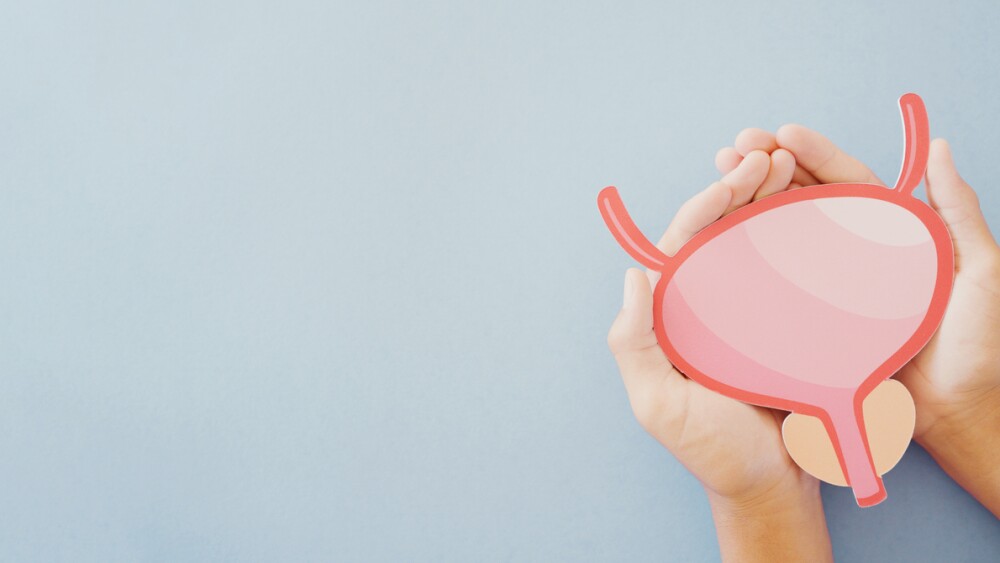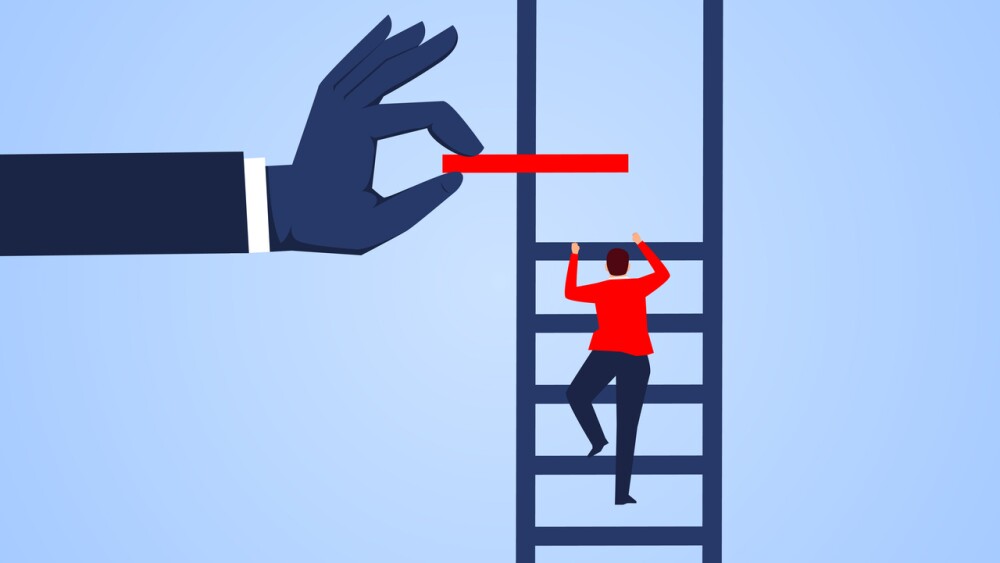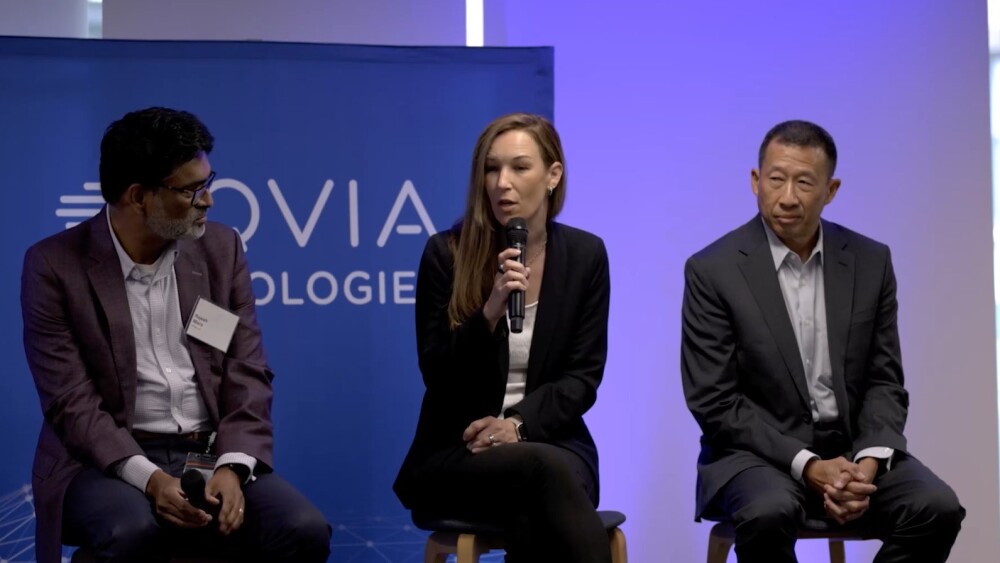The trial evaluated the safety and effectiveness of the Portable Neuromodulation Stimulator (PoNS) for the treatment of subjects with chronic balance deficits due to mild-to-moderate TBI.
NEWTOWN, Pa., Nov. 09, 2017 (GLOBE NEWSWIRE) -- Helius Medical Technologies (TSX:HSM) (OTCQB:HSDT) ("Helius" or the "Company"), a medical technology company focused on neurological wellness, announced results from its registrational trial evaluating the safety and effectiveness of the Portable Neuromodulation Stimulator (PoNS™) for the treatment of subjects with chronic balance deficits due to mild-to-moderate TBI.
The multi-center registrational trial titled, A double-blind, randomized, sham-controlled study of the safety and effectiveness of the Portable Neuromodulation Stimulator (PoNS™) 4.0 device for cranial nerve noninvasive neuromodulation (CN-NINM) training in subjects with a chronic balance deficit due to mild-to-moderate traumatic brain injury (TBI), evaluated a total of 122 randomized subjects (61 active and 61 control). Subjects, age 18 to 65, received 5 weeks of treatment (2 weeks in-clinic and 3 weeks at-home) consisting of physical therapy and either a high-frequency PoNS™ device (active) or a low-frequency PoNS™ device (control).
Endpoints for effectiveness were assessed using the Sensory Organization Test (SOT), measuring balance using computerized dynamic posturography. A responder rate analysis was used for the primary endpoint. A responder was defined as a subject with an improvement of at least 15 points on the composite SOT score compared to baseline after 5 weeks of PoNS™ Therapy.
Secondary effectiveness endpoints were contingent on the outcome of the primary endpoint and determining the clinical effectiveness of the low-frequency device. As the low-frequency device demonstrated, on average, statistically significant improvements on composite SOT scores compared to baseline (p<0.025) – the secondary effectiveness endpoints evaluated for the study were the mean change in composite SOT score from baseline at 2 and 5 weeks, for both arms combined.
Endpoints for safety were assessed by frequency of falls, frequency of headaches, and Adverse Events (AEs). Falls and headaches were measured by daily activity logs and the Headache Disability Index, respectively.
Study results highlights:
- Primary effectiveness endpoint demonstrated a trend toward a higher responder rate in the high frequency PoNS™ Therapy group (75.4%) than in the low frequency PoNS™ Therapy group (60.7%), p<0.081
- Primary effectiveness endpoint was not reached because low frequency pulse treatment had a significant therapeutic effect
- Secondary effectiveness endpoints demonstrated statistically and clinically significant increases (at least 8 points) in composite SOT scores:
- The mean improvement at 2 weeks for combined-arms was 18.3 points, p<0.0005
- The mean improvement at 5 weeks for combined-arms was 24.6 points, p<0.0005
- Successfully met primary and secondary safety endpoints as measured by a decrease in falls and headaches, in both groups
- There were no serious device related adverse events
“We are very pleased with the findings from our registrational trial that demonstrate that PoNS™ Therapy, deployed independently across our seven study sites, produced statistically significant improvements in balance from baseline, on average over three times the clinically significant amount,” said Helius’ Chief Medical Officer, Dr. Jonathan Sackier. “Achieving the safety endpoints and further growing a positive safety profile continues to build confidence in our technology. With an underserved patient population waiting for improved treatment opportunities, we are eager to move forward with our applications for clearance with the U.S. Food and Drug Administration (FDA) and other foreign regulatory bodies.”
TBI is a serious public health problem in the United States, according to the U.S. Center for Disease Control. A large proportion of TBI patients with chronic balance symptoms are left with limited treatments options. Currently available therapies are minimally effective and focus on teaching patients how to cope with their remaining deficits, rather than improving symptoms.
“We are excited to be on the forefront of research that may bring this novel and exciting therapy to patients in need,” said Dr. Alain Ptito, Director of the Department of Psychology of the McGill University Health Centre and Coordinating Principal Investigator for the study. “The investigators and research teams from the Montreal Neurofeedback Center, Orlando Regional Medical Center, Oregon Health and Sciences University, Health Tech Connex, Inc., Virginia Commonwealth University, MedStar National Rehabilitation Hospital and University of Wisconsin – Madison are pleased with the execution of this study and look forward to further analysis and publication of the results.”
“This is a very exciting and promising milestone for our Company, patients and the healthcare community,” added Helius’ CEO, Philippe Deschamps. “Our next steps include compiling the clinical evidence produced from this registrational trial and previous studies investigating the PoNSTM treatment, as well as verifying and validating product design improvements and manufacturing to be included in our regulatory application. We are working to submit our 510(K) application to the U.S. FDA in the first half of 2018, with clearance anticipated in the second half of 2018.”
Helius is building upon almost 40 years of scientific research on neuromodulation, early pilot projects and case studies performed at the Tactile Communication and Neurorehabilitation Laboratory (TCNL) at the University of Wisconsin in Madison. Most recently, a study at the University was conducted to evaluate what happens when responders to PoNS™ Therapy stop treatment. The results showed that, on average, subjects with compromised balanced who restored vestibular function to normal levels after 14 weeks, maintained their improvements even after 12 weeks of wash-out.
The company will provide a presentation of the data on Thursday, November 9, 2017 at 8:00 AM ET.
- Webcast at http://www.wsw.com/webcast/cc/hsdt
- Dial-in at 1 (866) 939-3921 (US Toll Free) or 1 (678) 302-3550 (US Toll). Please use confirmation number 45986789.
- An archived copy of the webcast will be available at www.heliusmedical.com and http://www.wsw.com/webcast/cc/hsdt
About PoNS™ Therapy
The PoNS™ is an investigational, non-invasive, wearable medical device designed to deliver neurostimulation through the tongue. Clinical research has shown that electrical stimulation of the tongue activates two major cranial nerves – the trigeminal nerve and the facial nerve. Electrical stimulation of these cranial nerves creates a flow of neural impulses that are then delivered directly into the brain stem and cerebellum. PoNS™ Therapy combines the use of the PoNS™ device with physical therapy.
About Helius Medical Technologies, Inc.
Helius Medical Technologies is a medical technology company focused on neurological wellness. Helius seeks to develop, license and acquire unique and non-invasive platform technologies that amplify the brain’s ability to heal itself. Helius intends to file for FDA clearance for the PoNS™ device. For more information, please visit www.heliusmedical.com.
The Toronto Securities Exchange has not reviewed and does not accept responsibility for the adequacy or accuracy of the content of this news release.
Cautionary Disclaimer Statement:
Certain statements in this news release and to be made in this morning’s presentation are not based on historical facts and constitute forward-looking statements or forward-looking information within the meaning of the U.S. Private Securities Litigation Reform Act of 1995 and Canadian securities laws (“forward-looking statements”).
All statements other than statements of historical fact included in this news release and in this morning’s presentation are forward-looking statements that involve risks and uncertainties. Such forward-looking statements include, among others, statements regarding ongoing or planned clinical research, expected future development timelines, regulatory submissions and approvals or other business initiatives and objectives.
Forward-looking statements are often identified by terms such as “estimate” “intend” and similar expressions.
There can be no assurance that such statements will prove to be accurate and actual results and future events could differ materially from those anticipated in such statements. Important factors that could cause actual results to differ materially from the Company’s expectations include the failure of the Company to achieve its business objectives and other risks detailed from time to time in the filings made by the Company with securities regulators.
The reader is cautioned that assumptions used in the preparation of any forward-looking statements may prove to be incorrect. Events or circumstances may cause actual results to differ materially from those predicted, as a result of numerous known and unknown risks, uncertainties, and other factors, many of which are beyond the control of the Company. The reader is cautioned not to place undue reliance on any forward-looking statement. Such information, although considered reasonable by management at the time of preparation, may prove to be incorrect and actual results may differ materially from those anticipated. Forward-looking statements contained in this news release and this morning’s presentation are expressly qualified by this cautionary statement. Risks and uncertainties about the Company’s business are more fully discussed in the Company’s disclosure materials, including its Annual Report on Form 10-K and other filings with the United States Securities and Exchange Commission and the Canadian securities regulators and which can be obtained from either at www.sec.gov or www.sedar.com.
The forward-looking statements contained in this news release and to be made on this morning’s presentation are made as of the date of this news release and the Company assumes no obligation to update any forward-looking statement or to update the reasons why actual results could differ from such statements except to the extent required by law.
HELIUS CONTACTS:
Investor Relations:
Josh Berg, 415-205-7891
info@heliusmedical.com
Media Contact:
Becky Kern, 914-772-2310
bkern@heliusmedical.com




